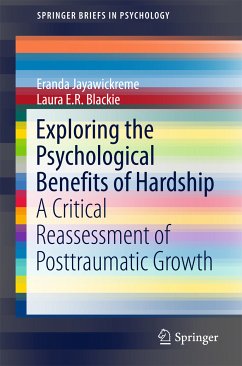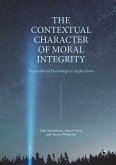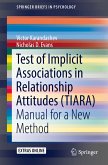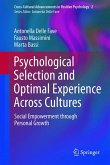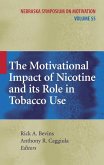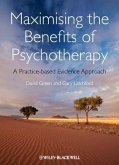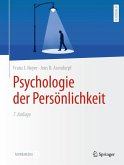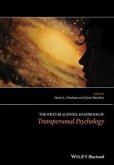Broadly, this argument is put forward in five progressive sections. Beginning by giving a conceptual and interdisciplinary overview of posttraumatic growth as a phenomenon, the volume then reviews the current academic conceptualization of posttraumatic growth and makes a case for a 'reset' in the research. The next section maintains that posttraumatic growth is in fact a form of positive personality change and should be analyzed using personality science methodology. Using positive personality change as a theoretical foundation for posttraumatic growth, the following two sections look at posttraumatic growth in context. It is explored both in the long term, such as in the development of reflective knowledge and wisdom, and in specific situations such as with refugees in Sri Lanka and survivors of the Rwandan genocide. Lastly, Exploring the Psychological Benefits of Hardship: A Critical Reassessment of Posttraumatic Growth concludes by offering recommendations for scholars and researchers that will improve the quality of research on posttraumatic growth, and will advance this important and worthy field.
Dieser Download kann aus rechtlichen Gründen nur mit Rechnungsadresse in A, B, BG, CY, CZ, D, DK, EW, E, FIN, F, GR, HR, H, IRL, I, LT, L, LR, M, NL, PL, P, R, S, SLO, SK ausgeliefert werden.
"In Exploring the Psychological Benefits of Hardship: A Critical Reassessment of Posttraumatic Growth, Eranda Jayawickreme and Laura E.R. Blackie present a valuable inquiry into the evaluation of posttraumatic growth and the accuracy of posttraumatic growth tests, concluding a need to reexamine how to assess for such changes. ... Exploring the Psychological Benefits of Hardship: A Critical Reassessment of Posttraumatic Growth provides a great evaluation of the current state of posttraumatic growth research ... ." (Nicholas Minaudo, Journal of Youth and Adolescence, Vol. 46, 2017)

